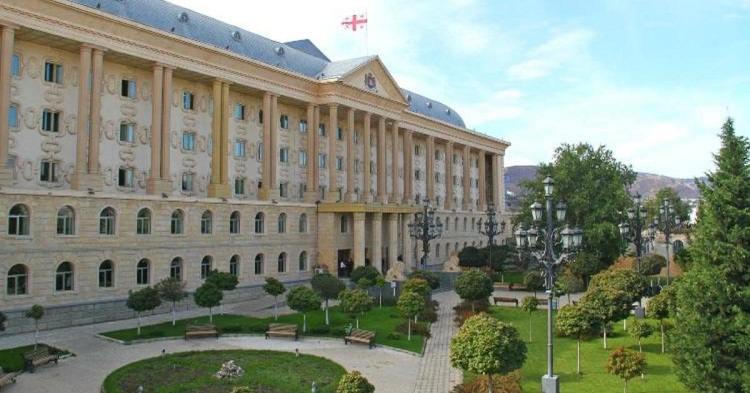EU says further financial aid will made conditional on Georgian judiciary reforms

The EU says that Georgia has adopted recent changes for the country’s Supreme Court ‘in a hastily manner.’ Photo: rootedinrights.org.
The European Union says that revising the selection process of Georgian Supreme Court judges in line with CoE’s Venice Commission recommendations will be a condition for the disbursement of the second tranche of macro-financial assistance to Georgia under its current programme.
On 1 April, the Georgian parliament adopted legislative amendments reviewing the selection process of Supreme Court judges.
The European Union has repeatedly expressed concerns over the shortcomings in this selection process and the applicable rules,” said the EU’s statement released yesterday.
The EU has welcomed the initiative to amend the legal framework of the selection process of judges. However, it was ‘disappointing’ that the Georgian parliament ‘hastily designed and adopted these amendments without an inclusive consultation process.’
The European Union therefore strongly recommends Georgia to request as soon as possible a Venice Commission assessment on whether the adopted amendments comply with its previous recommendations. The new rules, once confirmed by the Venice Commission, need to apply equally to all applicants,” said the statement.
The EU says that ‘It is crucial’ that the Supreme Court, Georgia’s highest judicial instance, be composed of judges of ‘utmost professional competence and integrity’.
 Turmoil around the Georgian Supreme Court judges began at the end of 2018. Photo: Georgian Supreme Court.
Turmoil around the Georgian Supreme Court judges began at the end of 2018. Photo: Georgian Supreme Court.
On April 1, the 150-member Georgian parliament approved the amendments by 86 votes.
Currently only six of 60 opposition MPs are present in parliament.
The rest, 54 opposition MPs have been demanding repeat parliamentary elections since November 2020 and they have refused to take up their mandates.
According to the recent amendments the criteria for evaluating candidates selected by the High Council of Justice for the Georgian Supreme Court are made public.
The High Council of Justice also changes the rules for compiling a list of candidates for the final stage of the selection of candidates (voting stage) and this list is compiled by the High Council of Justice not as a result of voting, but according to the scores accumulated during the evaluation of candidates' ‘competence and good faith criteria’.
 The ruling Georgian Dream party says that they always consider the recommendations of Venice Commission. Photo: parliament of Georgia press office.
The ruling Georgian Dream party says that they always consider the recommendations of Venice Commission. Photo: parliament of Georgia press office.
Only the candidates who will receive the highest scores in the assessment of competence and good faith criteria will be submitted to parliament for the final vote.
A member of the High Council of Justice will have to provide reasons for his/her decision in the vote no matter whether he/she supports the candidate or not.
The lifetime appointment procedures of Georgian Supreme Court Judges have been the reason for turmoil in the country since the end of 2018.
The Georgian civil sector, several, non-judge members of the High Council of Justice and opposition members say that the High Council of Justice, which selects and appoints judges around the country, is biased in its decisions and that it is run ‘by a clan of judges.’
 Tweet
Tweet  Share
Share